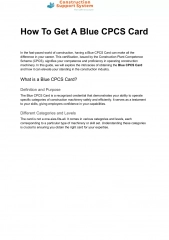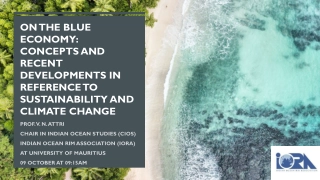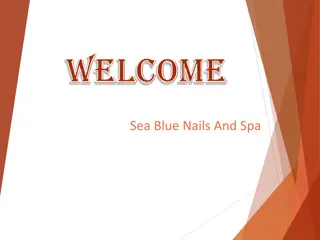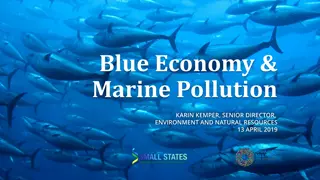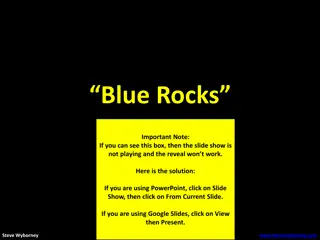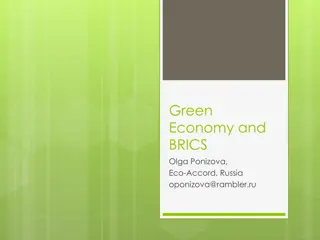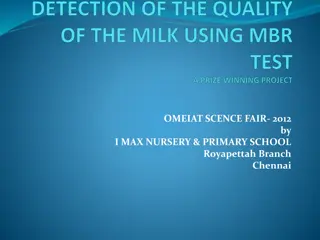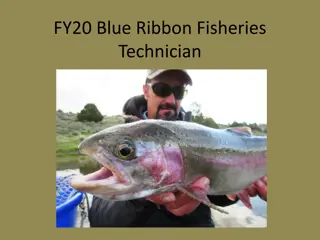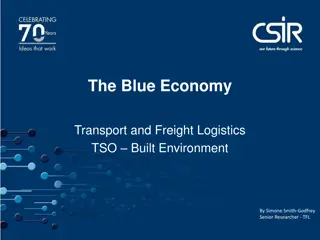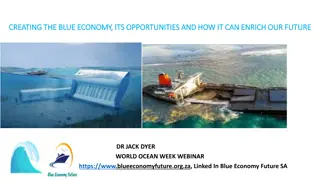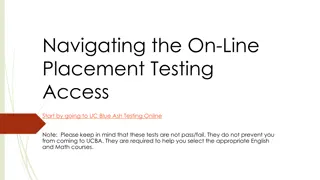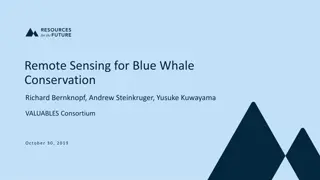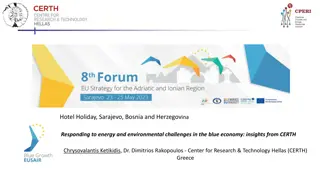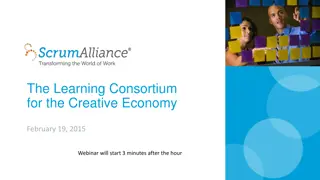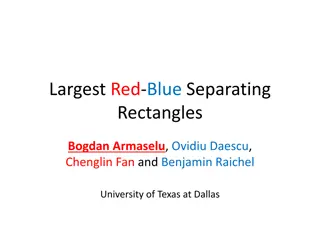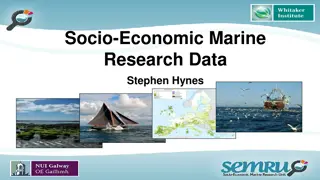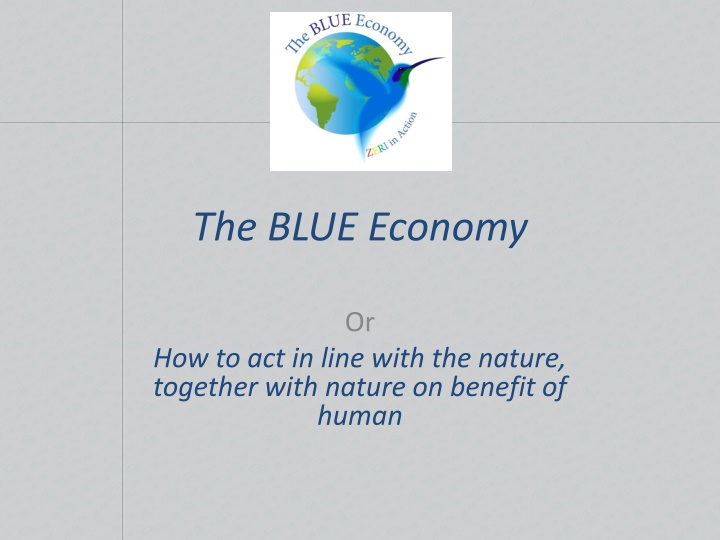
Blue Economy: Embracing Sustainable Practices for Human Benefit
Explore the origins of the Blue Economy concept, initiated by Gunter Pauli in 1994, highlighting its evolution from zero emissions research to the groundbreaking initiatives presented at the 2000 World Expo in Hannover. Learn how the Blue Economy aligns with nature for the betterment of humanity and the planet, as demonstrated through various innovative projects. Delve into the transition from sustainability talk to actionable solutions and the challenges posed by the traditional focus on economic growth, efficiency, and competitiveness. Understand the historical context of Earth's fullness and the importance of community focus for societal resilience.
Download Presentation

Please find below an Image/Link to download the presentation.
The content on the website is provided AS IS for your information and personal use only. It may not be sold, licensed, or shared on other websites without obtaining consent from the author. If you encounter any issues during the download, it is possible that the publisher has removed the file from their server.
You are allowed to download the files provided on this website for personal or commercial use, subject to the condition that they are used lawfully. All files are the property of their respective owners.
The content on the website is provided AS IS for your information and personal use only. It may not be sold, licensed, or shared on other websites without obtaining consent from the author.
E N D
Presentation Transcript
The BLUE Economy Or How to act in line with the nature, together with nature on benefit of human
How it had started? Mr Gunter Pauli Belgium entrepreneur 1994 - 1997 Zero Emissions Research started as an initiative at the United Nations University a think tank to help prepare the Protocol of Kyoto 1996 - the creation of the ZERI Foundation in cooperation with the United Nations Development Program
2000 - participation at the World Expo in Hannover, Germany where we received 6.4 million visitors presenting 7 first initiatives and beer and bread (in Germany) coffee and mushrooms (in Zimbabwe) cement and compost (in Sweden) regenerating the rainforest (in Colombia) bamboo and housing (in Indonesia and Colombia) carrots and island growth (Gotland) integrated farming systems (Fiji)
Based on the numerous examples and experience Report presented to the Club of Rome (organization of individuals who share a common concern for the future of humanity and strive to make a difference ) On 2009 is transformed in the first edition of the Blue Economy
What we have today? Everybody is talking about sustainability And that is all .or..? Dr Toth Gergly, The Truly Responsible Enterprise,2009.
The holy trinity of economism 3. GROWTH 1. EFFICIENCY 2. COMPETITIVENESS
Earth Fullness from 10,000 BC to 2008 Earth fullness [%] 160,00% 140,00% 120,00% 100,00% 80,00% 60,00% 40,00% 20,00% 0,00% 1 1957 1971 1500 1700 1913 1951 1953 1955 1959 1961 1963 1965 1967 1969 1973 1975 1977 1979 1981 1983 1985 1987 1989 1991 1993 1995 1997 1999 2001 2003 2005 2007 -10 000 -4 000 -2 000 -500 Earth fullness [%]
. Communities break down and society fail when economy activities are not focused first and foremost on the basic needs of all the local people Gunter Pauli
Economism Bionomy Externalities Internalities Peaceful balance (grown up!) Growth GDP GDP + ecol. footprint Globalization Localization (fullness, independence, freedom) (theory of comparative advantages) Extending competition Extending cooperation Money, as a means of speculation (Local) money, as a means of exchange Truly Responsible Enterprise (manager) Profit-maximizing corporation Specialization (mean -ingless work) Vocation meaning- ful work) Objective utility, marginal happiness Benefit and marginal utility antras teleios homo oeconomicus
Efficiency should not be maximized but optimized! optimum uneffective too effective
Rethinking efficiency X Efficiency means Y own goal Effectiveness Z Public- effectiveness public goal
We are not blindly opposed to progress we are opposed to blind progress
This presentation is also result of the one of the most important Blue economy pillars: COOPERATION ABOVE COMPETITION Thank you to: Dr Tibor Kiss, Dr Toth Gergely And of corse Proffessor Guner Pauli Ivanka Milenkovic, Belgrade, 2017

